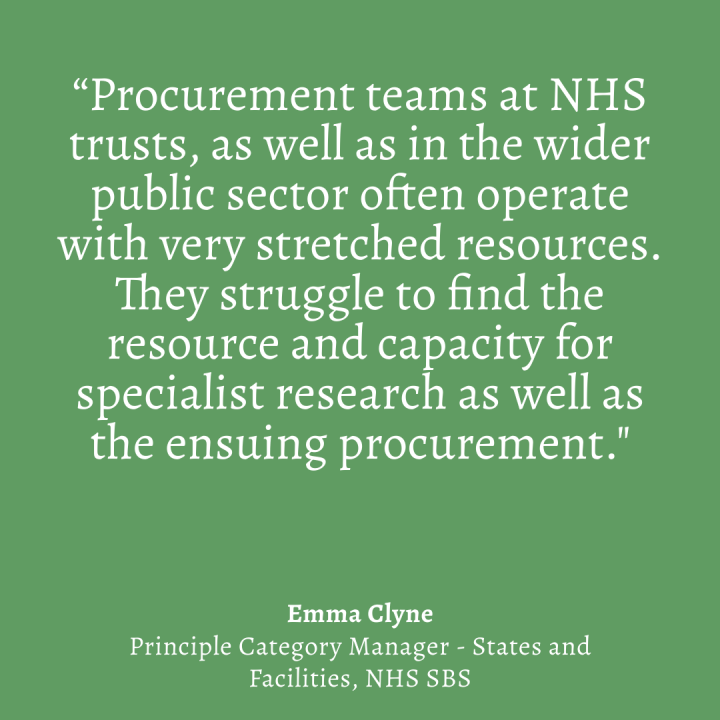NHS Shared Business Services has announced the launch of the first framework agreement that will aim to help the NHS meet its net zero targets.
The Sustainable Healthcare Recycling and Waste Management framework agreement has come about through collaboration with Barts Health NHS Trust, Greater Manchester Mental Health NHS Foundation Trust, Pennine Care NHS Foundation Trust and Bolton NHS Foundation Trust. This has also been complimented by added support from the suppliers of sustainable waste management services and technologies, with the aim of helping organisations across the NHS access innovative, sustainable solutions for waste management.
Included in the framework are:
- Pyrolysis
- Aerobic bio-digesters
- Microwave treatment

Emma Clyne, NHS SBS Principle Category Manager for Estates and Facilities, said:
“Sustainability in healthcare waste management has moved from a ‘nice to have’ position, to a focal objective where trusts will be required to undertake work to implement the new guidance.
“For context, the clinical waste strategy says that every year, NHS providers produce approximately 156,000 tonnes of clinical waste – equivalent to over 400 loaded jumbo jets of waste – that is either sent to high-temperature incineration or for alternative treatment. This has a significant environmental impact and is associated with high running costs and carbon emissions.
“Best practice waste management reduces waste, improves compliance, and delivers significant cost savings from lower waste volumes. This plays a crucial role in minimising harm to the environment and increasing resource utilisation, reducing carbon generated from waste, and saving taxpayers money.
“Procurement teams at NHS trusts, as well as in the wider public sector often operate with very stretched resources. They struggle to find the resource and capacity for specialist research as well as the ensuing procurement.
“Our framework agreement offers an easily accessible and compliant procurement route with the very latest sustainable waste management offerings and sustainable management expertise obtainable.”
This framework comes three years after the NHS announced that it is aiming to achieve net zero carbon emissions by 2040, with the clinical waste strategy – published in March this year – outlining how the NHS is working to transform the management of clinical waste to make it more cost-effective and sustainable. These will be used to help the NHS achieve an 80% decrease in waste management carbon emissions by 2032.
Image credit: iStock



















